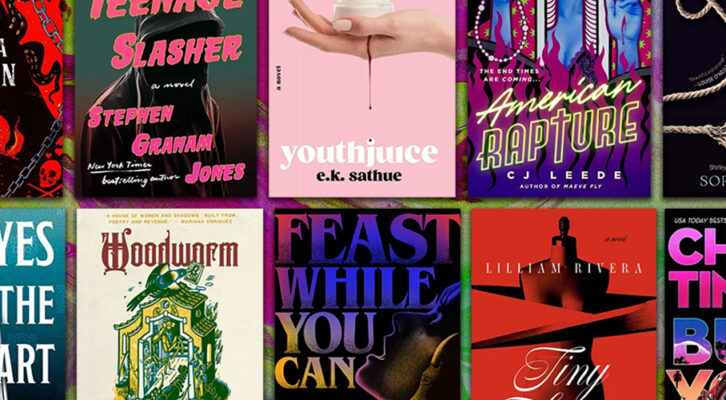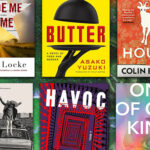David Lipsky Ends Up Becoming Himself
On the Oddness of Seeing Your Friend Portrayed Onscreen
A couple of years ago David Lipsky was planning a trip to Colorado and asked me to drive him there. He’d been invited to speak at a program and stay for a week or two. I had a valid license (he didn’t), and the prospect of a free stay in Aspen, where we could write and talk and generally rid ourselves of the scuzzy viscosity of New York summers sounded great, so I agreed. Then the trip fell through. Some bureaucrat decided I was an insurance risk to the house they’d set up for him, so that was that. I confess I was a little relieved when he told me. As far as I was concerned this would have been the second of exactly two road trips he’d taken in his life (one of those irrational certainties that are so hard to shake, power inversely proportional to probability, as with the fear of plane crashes and shark attacks, or the conviction of imminent fame), an evil prospect given a) our tendency to measure two things in isolation against one another and b) that the first road trip was with David Foster Wallace.
That trip with Wallace spanned five days in early March of 1996, on the last leg of his book tour for Infinite Jest. They never spoke again. Their only other interaction came shortly after they parted, in the form of a note Wallace included when he mailed back the shoe that Lipsky had left behind (how he managed to do this I’ve never really understood, and whenever I see an abandoned shoe or sock or other thing that seems unreasonable to me to have gotten away from its owner, I think of this). If you don’t know what the note said, I won’t spoil it.
The first time I sat down one-on-one with Lipsky myself was in an uptown diner around the corner from his apartment. I was in grad school then, and he was my professor. We talked about class, about where I was from, where I’d gone to college, what I thought of my classmates’ work. I powered through about five cups of coffee, trying to caffeinate myself into lucidity. Then, “What are you reading?” I told him what I was reading. “Mmm, what else.” I told him what else. “What else?” I told him. He said he wasn’t familiar with it, asked what it was, if I liked it, why I liked it, and said he’d check it out. Then, “What else?” I was out of things I was actually reading at that point. Not wanting to admit it, the obvious implication being that there should, in fact, be something else, I tossed out something I’d read years earlier. Whatever random title that had popped into my mind. A mistake: it was one he knew very well. I tiptoed through a discussion of several notable scenes, long gone hazy in my memory, and did some admirable (I may be exaggerating on that point) extemporizing. Then he said, “What else?”
This is a regular routine when we talk, and for a while it made me very nervous, and a little defensive. I’d make lists of things I was reading and watching before I’d go see him because I was always forgetting when he’d ask. (My anxiety about the road trip-that-wasn’t again—how’s that conversation going to stack up? Before I answer, let me consult my notes.) There’s an impulse to prove yourself, as with a girlfriend’s friends, to demonstrate that you’re one of the good ones. You want him to like you. And then, the more he asks, the more you get the sense that he’s interested, that maybe you make the cut, suddenly what you really want is to keep on talking.
I wonder what it must have been like for Wallace, the roles the same but the hierarchy reversed. Certainly he was better at it.
The profile Lipsky began in 1996 was delayed, then shelved, by Rolling Stone, but he kept the tapes squirreled away in a shoebox in his apartment on the Upper West Side. After Wallace’s death in 2008 he returned to them, as he had from time to time in the intervening years, but with a different purpose. He wanted, he said, to make public his memories of the Wallace, brilliant, freewheeling, self-deprecating, that he’d spent those five days with. A man who saw a “crisper world,” as Lipsky put it on NPR then, than the rest of us, and who was arrogant and generous enough to let us share in that vision. He worried about the way a public figure’s suicide can color the collective memory. So he did a remembrance on All Things Considered, then a piece in Rolling Stone that won a National Magazine Award, and then came the book-length transcription of their time together, Although of Course You End Up Becoming Yourself. And now twenty years later, in what has to be one of the less foreseeable things to come out of recent Hollywood, a feature film.
Have you ever seen a character on screen who’s based on, shares a name with, says the same things as somebody you know? I hadn’t. Turns out it’s a little jarring, a field day for the inner cynic, the dinner-party showboat, spouting off with he-would-never-say-it-like-thats at slightest provocation. This was much exacerbated on my first viewing of The End of the Tour because I was sitting on a couch next to the real Lipsky at the time, who was burning down American Spirits like his lunch break was almost over and asking what I thought of this scene or that. And I kept asking him, which seems very boorish in retrospect, what Wallace had really done, if a line played seriously had been said, in fact, in jest (it had been), if he’d really gone back for those extra snacks on Rolling Stone’s dime (he had not). Still, the strange pang of quasi-recognition slowly faded. And when I saw it again in the theater sans Lipsky, and actually watched it, it was gone.
Jesse Eisenberg might not be anything like the David Lipsky I know, but he’s a great “David Lipsky,” foil for Jason Segel’s disarming “Wallace.” The End of the Tour is not, and could never be, a portrait of David Foster Wallace, any more than it could be of David Lipsky (though I doubt so many people will quibble about the latter—that’s always been the thing about DFW, the sense so many people have of really having known him, in a secret, exclusive kind of way). It’s a means of seeing Wallace in reflection, as his writing was. It’s a story, in a way that conversations you or I might have will never be. It might not be the truth but unalloyed truth never seems quite real. Wallace knew this well. It’s stamped all over his essays—the too-good quote, the chance encounter—and they’re no less accurate for it. The Wallace in Lipsky’s book, and the truncated version of that Wallace in the film, isn’t Dave Wallace any more than Petra, who’s assigned to clean Wallace’s cruise ship cabin in “A Supposedly Fun Thing I’ll Never Do Again” is Petra. This is Wallace-as-interviewee. And, really, not even that—the movie is a selection of that, and a selection made less to expose maximally Wallace the man than to engage us in a narrative in which he plays a part. Wallace the observer, Wallace the actor, Wallace the signifier, Wallace the signified.
Of course, it’s easier to say that about Wallace because I never met him. When I heard they’d cast Eisenberg as Lipsky I was surprised, and a little annoyed. Segel, whatever the worries were about his dramatic chops, could at least look and sound like Wallace. What I realized later is that I had been interested in seeing my friend in a movie, not a movie about my friend, and that the former—writing, teaching, dog walking—probably wouldn’t make for much of a film.
Have you ever listened to a Hollywood-standard action movie through a wall? I love them, so this isn’t criticism, but it’s a great illustration of how little talking some movies require to be enjoyable. When I passed a neighbor’s door yesterday, I found that they sound like “No!” Bluh! Bluh! Bleh! [Bang] Bluh! “I’m sorry.”
A fistfight is a wonderful narrative device in film—each swing its own minor drama. Whether your guy wins or loses, you’re ready for the next step, either the subsequent henchman or the beginnings of revenge against the victor. Not a word required. The opposite of this, the dialogue-driven, seems more common than it is for how memorable the successes tend to be. That The End of the Tour works so well is a testament to director James Ponsoldt, but especially to Donald Margulies, who adapted the screenplay, and his disinterest in biographizing.
It’s tricky to do this kind of film well, and trickier still entertainingly, because it functions along the same lines but without the universalizing appeal of violence. (You ever find yourself walking a little straighter coming out of an action flick, shoulders back, chin up? It’s easy to imagine yourself clocking a terrorist in the face; almost mandatory. Reflecting on the nature of the interviewer-interviewee relationship somewhat less so.) There’s an overarching mystery, posed at the beginning and not answered til the end. In this case, the question of why Wallace had himself put on suicide watch in his late-20s, a question Wallace answered in the book on their first day. There are a series of escalating obstacles—whether Lipsky can get Wallace to open up, an annoying escort who picks them up from the airport, a sort-of love triangle. But where each successive hurdle in an action film tends to involve our hero getting stronger—flashier moves, grittier grit, steelier gaze—in The End of the Tour, and others like it, it’s as often the exposure of weakness. Insecurity, jealousy, pride, false modesty. Everybody’s best self being gradually described in pieces over the course of two hours doesn’t make for much of a movie. You’ve got to be building to something.
There’s a moment in the book when Wallace, at the airport and waiting to see if their flight to Chicago’s been canceled, says that he’s glad when flights are late, that it gets him out of doing his book tour chores. Lipsky, in a bracketed aside (these are a mashup of notes he’d taken at the time and later reflections), writes that Wallace is, and not for the first time, “trying to show how much he doesn’t like publicity. Except if he isn’t a genius, there’s no good reason to read the novel. You don’t open a one-thousand-page book because you’ve heard the author’s a nice guy. You read it—once you prop the thing open at all—because you understand the author is brilliant.” Margulies pulls this line out of its friendly, reflective context and puts it in Lipsky’s mouth at the height of an argument. He makes a real zinger of it, one of those jabs that shut everything down. And suddenly, like Godzilla rising from the more diffuse chaos of the sea, there’s a climax.
It’s an excellent ahh, there it is moment, up on the list with The Crying of Lot 49 and Jurassic Park, when the title of Lipsky’s book comes around. Wallace is talking about his childhood, and the degree to which his parents tried to steer him away from TV and toward books. He says that, no, they tried to be hands-off, children of the ‘60s that they were, “although of course you end up becoming yourself.” It’s a great line, and a perfect encapsulation of Wallace’s oft-remarked brand of honesty-as-intelligence—it makes such perfect sense, and yet you’d somehow never thought to think it. (As Wallace himself put it to Lipsky: “The writer does his job right, what he basically does is remind the reader of how smart the reader is. Is to wake the reader up to stuff that the reader’s been aware of all the time.”) That compulsion I feel to weigh each member of a pair against the other—it puts into perspective for me just how brilliant David Foster Wallace was, to have made such an impact on Lipsky, himself at the top of the list of most brilliant people I know. To look back at their conversation is humbling, certainly, but also it’s thrilling. “David’s writing self,” Lipsky wrote in the afterward to the book, “was the best friend you’d ever have, spotting everything, whispering jokes, sweeping you past what was irritating or boring or awful in humane style.” I’m glad to be reminded there are such people among us, helping us along.
One thing about Lipsky as a teacher is that he’s great for career advice, which made me curious. So I sent him an email and asked him—the book, the movie—if he ever worried he’d planted himself permanently in Wallace’s shadow. He called me a couple of hours later. “I thought about it,” he said. “You can do all kinds of books in a career. I never thought I’d spend five years working on a cultural history of the climate change debate [his next book, nearly finished]. But it is a risk—you’re writing about someone who was the best person writing.” He mentioned a couple of novelists better known now for biographies of other writers. But, he said, “when you love a writer you want to spend time with them. We had this conversation that also works as a narrative, where he told his story. When you get to know someone really well you can feel what it’s like for them to be there in a room, even if they aren’t talking. And when I went back to the interview it felt like that.” Mostly, he told me, “I wrote it as a fan.”
I was at work when he called, had stepped out to answer. He told me he didn’t want to get me in trouble, then launched into a story. “When I was working at this financial consulting firm a long time ago,” he told me, “I used to photocopy the book I was reading and put all the pages in a manila folder and walk around reading them. People would come up to me and say hey, I’m glad you’re so into those reports, you look like you’re reading a really absorbing work of fiction!” Then he said he’d let me go, get back to it. Half an hour later, I got an email:
Was thinking about what you said. Melville was always afraid of being known as the man who lived among cannibals. When I wrote my first book, I was afraid of being the man whose first short story Raymond Carver picked [for the Best American Short Stories of 1986]. Then I was afraid of being known as the man who writes about painters and sculptors [his first novel, The Art Fair]. Then I was afraid of being known as the man who lived among cadets [Absolutely American, for which he spent four years living with the cadets at West Point]. So the fear of being known as the man who traveled with Dave Wallace—it’s just, if you have those fears, you don’t write anything. Or you don’t write anything good.
He told me to call later, so we could talk. What have I been reading? I agreed.




















